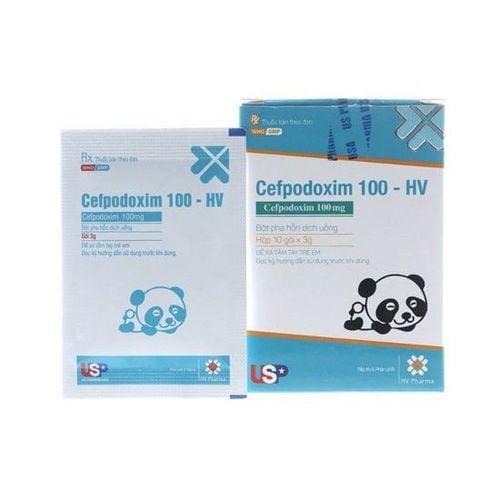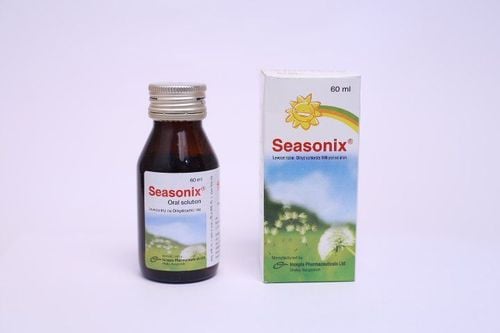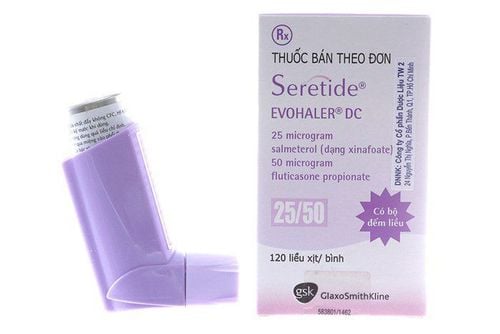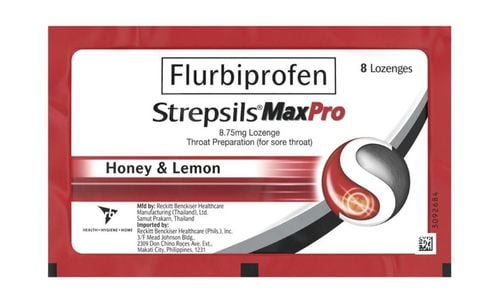This is an automatically translated article.
The article was professionally consulted by Dr. CCII Nguyen Van Thai - Department of Otolaryngology and Head and Neck Surgery, Vinmec Danang International General Hospital. Thai doctor has more than 17 years of treatment experience, especially in the field of Head and Neck Surgery.Pharyngitis due to infection still appears with the usual signs of illness, however, when not treated with medication, the disease has a risk of serious complications such as acute glomerulonephritis or rheumatic heart disease... Treatment of pharyngitis caused by infection Bacteria are often prescribed by doctors to use antibiotics, along with antipyretics, anti-inflammatory drugs...
1. What is bacterial pharyngitis?
Bacterial pharyngitis is a sore throat caused by Streptococcus bacteria. Symptoms are usually more severe than a viral throat infection. If not treated in time, the disease will cause complications such as kidney inflammation or rheumatic fever.Bacteria called Streptococcus pyogenes, or group A Streptococcus are the main cause of bacterial pharyngitis. This is a very contagious disease and is mainly spread in the following ways:
Respiratory tract: breathing in airborne droplets when an infected person coughs or sneezes. Eating with the sick person. Contact with objects such as doorknobs or other surfaces contaminated with disease-causing bacteria. Anyone can get a sore throat from a bacterial infection, but children are most susceptible between the ages of 5 and 15. Children 3 years of age and younger rarely get this disease. The most common risk is close contact with an infected person.
2. Symptoms of pharyngitis caused by bacterial infection
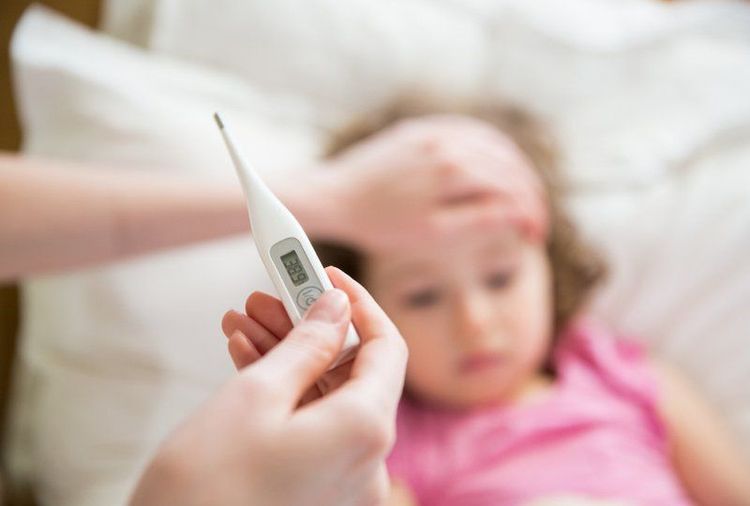
Sore throat or difficulty swallowing Fever over 38 degrees C Headache Rash Stomach pain Loss of appetite, nausea Muscle pain and stiffness Swollen pharyngeal glands and white patches in the throat or small red dots may appear on the roof of the mouth The lymph nodes in the neck are swollen and painful. However, not everyone infected with Streptococcus bacteria develops a sore throat. In other words, you can carry the bacteria and can pass it on to others without showing any symptoms.
3. Treatment of sore throat caused by bacterial infection with medicine
3.1. Examination and diagnosis Your doctor will diagnose bacterial pharyngitis based on symptoms or a physical examination. In addition, the doctor will also diagnose the disease based on the following methods:Take a sample of fluid from the throat: to determine the presence of pathogenic bacteria or not. Antigen test: you will have to perform this method when the results from the fluid sample do not meet the doctor's order. 3.2. Treatment of pharyngitis caused by infection Bacterial pharyngitis must be treated with antibiotics. Although treating sore throat with folk methods without antibiotics, the symptoms of the disease will still be self-limited, but in some cases there will be unpredictable complications. In addition, thorough treatment of pharyngitis also aims to reduce the possibility of spreading the disease to those around.
For the treatment of pharyngitis for group A infections
Groups of antibiotics such as penicillins, cephalosporins or macrolides can be used, in which penicillin is still the first choice drug in the treatment of pharyngitis. Because this is a drug that is easy to use, low cost and highly effective.
For the treatment of patients with drug allergies
In case the patient has a history of or is allergic to the penicillin group of drugs, it is possible to change to other drug groups such as cephalosporins (cefadroxil, cefuroxime, cefixime... ) and macrolides (but an antibiogram is needed because there have been studies of pharyngitis caused by group A infections that have become resistant to some of these classes of antibiotics).
Supportive drugs
Antipyretic drugs such as paracetamol (when the fever is higher than 38.5 degrees Celsius). Anti-inflammatory and anti-edematous drugs such as alphachymotrypsin are also often used for these patients. In addition, patients should increase their intake of fruit (or take vitamin C) to strengthen the body's resistance.

4. Complications of pharyngitis caused by bacterial infections can be encountered
Pharyngitis is caused by an infection that is transmitted directly from person to person. Normally, a person is susceptible to the disease through contact with droplets released by an infected person's cough or sneeze. It takes 2-5 days after exposure to start showing symptoms.People with pharyngitis due to bacterial infection are susceptible to infection due to weak resistance. A sore throat caused by a bacterial infection usually has more severe symptoms than other causes. More dangerous, if the patient is not treated promptly and properly, it can lead to complications:
Infection in the tonsils, ears, blood, acute glomerulonephritis and rheumatic fever. Rheumatic fever can lead to joint pain and inflammation, a rash that even damages the heart valves, rheumatic fever Call your doctor or go to the hospital if you have any of the following symptoms:
Sore throat with swollen lymph nodes Blood Sore throat for more than 48 hours Sore throat with fever over 38°C in older children or fever for more than 48 hours Sore throat with rash Difficulty breathing or swallowing, including swallowing Fever with joint pain, shortness of breath, and rash Urine darkening more than 1 week after sore throat. This is a serious complication because the kidney is swollen due to bacteria.
5. Taking care of the sick and preventing sore throats caused by bacterial infections
In order to effectively treat sore throat, in addition to complying with the doctor's treatment regimen, the patient also needs to rest, drink plenty of water, eat light foods such as porridge, soup... gargle with water Physiological salt daily according to the instructions of the doctor, avoid contact, gather in crowded places... Prevention of sore throat caused by bacterial infection, need:Wash hands after coughing, sneezing, before preparing or when food to prevent disease transmission. Frequent hand washing is the best way to limit the spread of disease. Take all antibiotics prescribed by your doctor.

Otolaryngology Specialist - Vinmec International General Hospital specializes in examining and treating common ENT diseases such as: sore throat, tinnitus, non-allergic rhinitis, neck cancer throat; tumors of the head, face and neck, congenital malformations of the ear, nose and throat area by common surgical methods.
Please dial HOTLINE for more information or register for an appointment HERE. Download MyVinmec app to make appointments faster and to manage your bookings easily.





